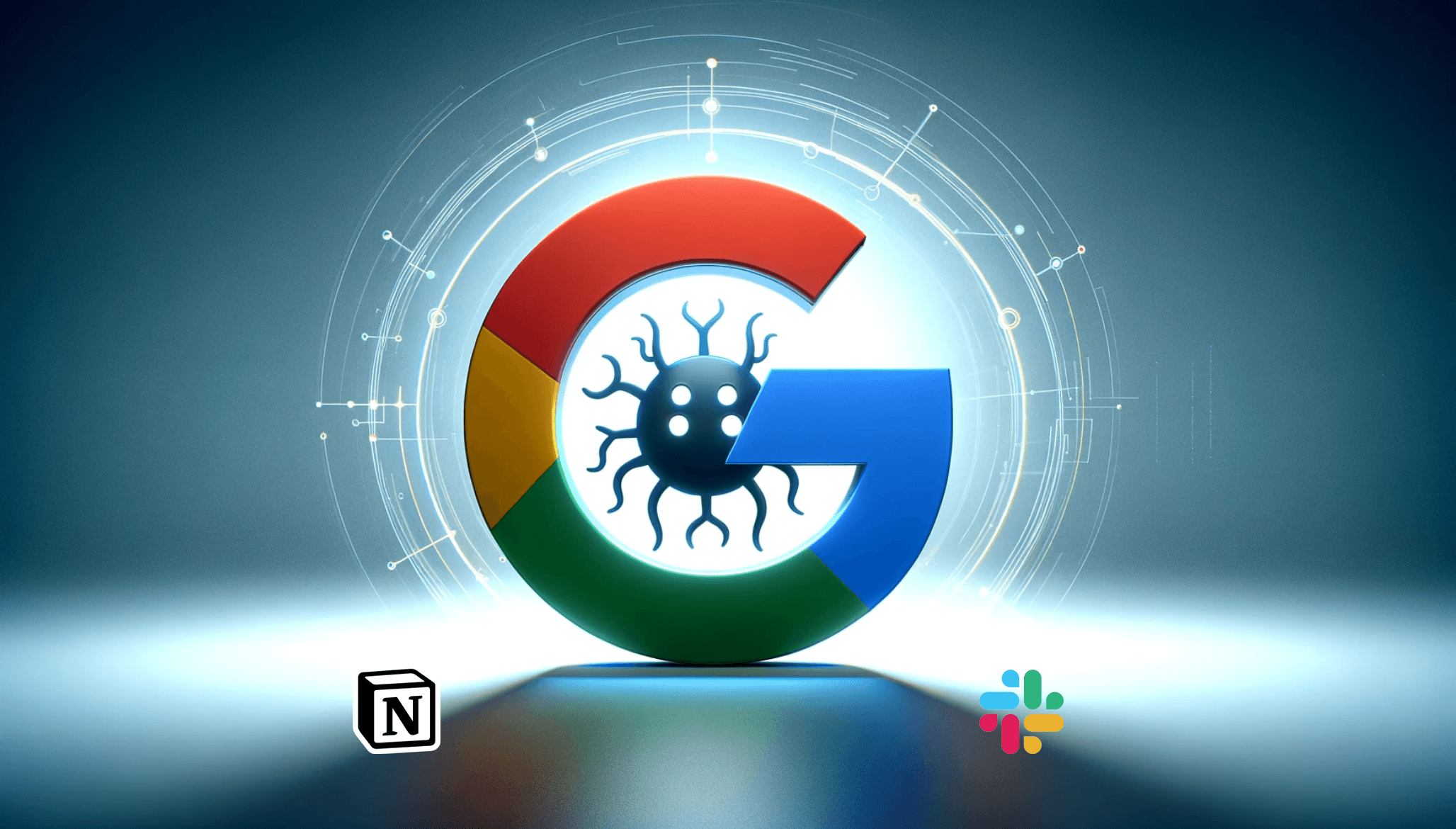
Cybersecurity Alert: Google Ad Exploits Target Slack and Notion Users with Malware
Cybersecurity | Encripti
Apr 04, 2024
Cybersecurity experts uncover a sophisticated malware campaign exploiting Google Ads to deliver harmful software under the guise of popular collaboration tools like Slack and Notion.
In a concerning development for corporate teams relying on collaborative groupware, cybersecurity researchers have identified a malicious campaign exploiting Google Ads. This strategy involves duping users into downloading malware-disguised versions of widely-used applications such as Slack and Notion. This article explores the mechanics of this deceitful tactic, the implications for users, and how to safeguard against such threats.
The Mechanism of the Malware Distribution
Exploiting Google Ads for Malicious Ends
Attackers have cleverly manipulated Google Ads' ad-tracking feature, traditionally used by advertisers to insert external analytics URLs for tracking ad traffic. By substituting these URLs with links distributing malicious code, attackers lure unsuspecting corporate users to download harmful software, feigning legitimacy as installer packages for popular collaboration tools.
The Discovery by AhnLab Security Intelligence Center
This alarming scheme was unveiled by the AhnLab Security Intelligence Center (ASEC), which observed the misuse of a statistical feature by attackers to circulate the Rhadamanthys stealer, a notorious piece of malware. Although the malicious ads have since been removed, their presence highlights a significant risk to users, tricking them into downloading and executing dangerous files.
The Campaign's Execution and Impact
Crafty Redirection to Malicious Downloads
The campaign intricately displayed banner ads containing invisible tracking URLs that redirected users to attacker-controlled pages. These pages, mirroring legitimate groupware tool websites like Slack or Notion, prompted downloads of malware-laden installers. The use of Inno Setup and Nullsoft Scriptable Install System (NSIS) installers for applications such as "Notion_software_x64_.exe" and "Slack_software_x64_.exe" facilitated the disguise.
The Menace of Rhadamanthys Stealer
Upon execution, the malware leverages text storage websites to fetch malicious payload addresses, eventually deploying the Rhadamanthys stealer. This malware, which integrates into legitimate Windows files, clandestinely pilfers private data from users. Its capabilities extend to collecting system information and extracting sensitive browser data, such as login credentials and browsing history, from a variety of internet browsers.
Staying Protected Against Ad-Delivered Malware
A Persistent Threat Landscape
This incident is not isolated, with Google Ads previously exploited to disseminate malware, including earlier campaigns distributing Rhadamanthys via deceptive ads for remote-workforce software. The abuse of dynamic search ads further amplifies these threats, underscoring the need for vigilance among internet users.
Critical Advice for Users
ASEC's findings serve as a crucial reminder for users to scrutinize URLs accessed through Google Ads carefully, distinguishing between the ad's displayed URL and the actual link destination. This caution is essential to evade the sophisticated tactics employed by cybercriminals.
Conclusion: Safeguarding Digital Workspaces
As digital collaboration tools become indispensable for corporate teams, the security of these platforms must be a top priority. This latest exploitation of Google Ads to target users of Slack, Notion, and similar applications underscores the evolving nature of cyber threats. Awareness and preventive measures are key to protecting oneself in the digital age, ensuring that collaborative innovation remains a safe and productive endeavor.